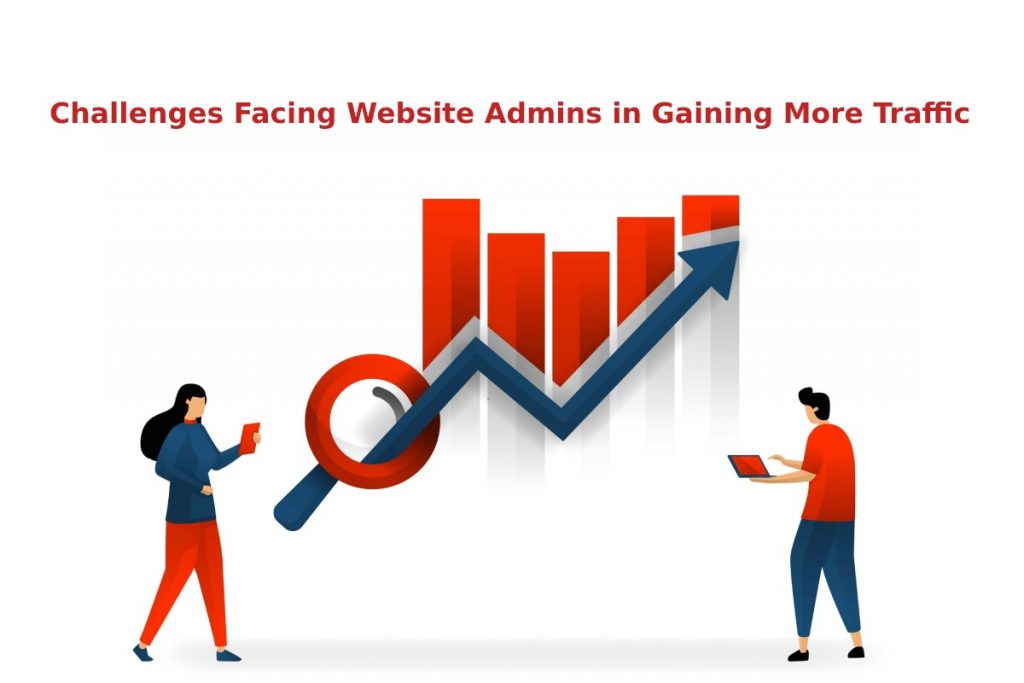Website Admins – There’s little doubting the tremendous impact the web and computers have had on modern society. From e-commerce shopping to vast media streaming services like Netflix, YouTube, or Spotify, technology has transformed almost all aspects of life in the 21st Century.
It’s worth remembering, the modern web only turned 30 this year, so, really, it could be argued we’re just at the start of a very long journey in terms of what the web could become. With the rise of Artificial Intelligence (AI) and the impending growth of the Internet of Things, the web of the future could look very different from how it does today.
The Problem of Trying to Get Content Noticed
It’s estimated we currently produce a frankly staggering 2.5 quintillion bytes of data every day, and in a world where there are now more web pages than there are people, it’s becoming harder and harder for content producers to make their material stand out.
From social media posts to blogging sites and streaming media sites like YouTube, there is now an enormous amount of content, all vying for the attention of viewers. Taken as a whole, it’s little wonder many site owners find their pages languishing down Google’s Search Engine Results Pages (SERPs).
The essential Role Played by Google in the Success or Failure of Sites
Experts suggest Google uses around 200 different criteria to rank the importance of a website – which, in turn, dictates where pages appear in its SERPs.
As of June 2021, it was estimated Google accounted for around 90% of all internet searches making it the undisputed king of search engines. Bottom line, these days, for a website to get traffic, it needs to rank high on Google searches. Indeed, the staggering success of Google doesn’t stop there, as is evidenced by the statistics below:
- As well as being the world’s most popular search engine, Google is also the most visited website globally, outperforming some of the world’s biggest companies like Facebook, Instagram, and Twitter. Indeed YouTube, another firm owned by Google’s parent company, Alphabet, sits in second place in terms of most-visited websites. You can see Google’s awesome performance by taking a look at a leaderboard of website rankings by traffic.
- On an average day, the engine processes 40,000 searches per second, equating to 3.5 billion requests a day or 1.2 trillion annually. By comparison, when it launched in 1998, it was only serving 10,000 per day.
- To get an idea of Google’s utter domination among search engines, one need only look at its competitors. Yahoo (once one of the biggest players in the search industry) now has just 2.7% of the market, where Microsoft’s Bing doesn’t perform much better at just 5.5%. When you consider the size and income of both these companies, it’s very clear Google’s recipe is working as it continues to keep its rivals at bay.
The Importance of Producing Engaging, Authoritative Content
It might be 25 years since Bill Gates first penned his prescient article entitled, “Content is King”, but the underlying message stands as true today as ever. If you look at the most successful web ventures operating in our modern online landscape, they all have one thing in common – namely, they all produce relevant, interesting, authoritative content.
Moreover, quality content has become even more important with the introduction by Google of Artificial Intelligence into its web spiders (the automated bots that traverse the web finding and gathering new information). Google’s AI ‘reads’ content like a human and is now so sophisticated it can even pick up on poorly-crafted wording and grammatical mistakes. The result? Producing poor content doesn’t just drive potential and existing audiences away; it will also see sites drop down Google’s ranking – a double whammy in terms of a content producer’s overall aim to promote their site online.
The Challenge of Constantly Updating Content
One thing that is very clear (and has been from the earliest days of Google) is that the engine likes nothing more than frequently updated content. This, too, can present a problem for content producers that are forced to constantly update their sites with relevant material to keep them high up the rankings.
Experts suggest website content should be updated at least once a week – preferably three times – which can put considerable strain on already busy site owners. And remember, as mentioned above, this content needs to be well-written, authoritative, and in line with the site’s subject.
How Search Engine Optimization (SEO) can Help?
Search Engine Optimization (SEO) is one tried and tested method used by experts to help sites get noticed. By using SEO, website owners can enhance their chances of getting higher rankings in the search engines, in turn, generating more traffic.
Producing an effective SEO and web marketing campaign is a highly detailed and involved process requiring programming, content production, and online promotion skills (among many others) that often go far beyond the knowledge of content producers. Consequently, for website admins to take full advantage of the potential of SEO, they need to enlist the help of a dedicated firm to take on the work – often at considerable cost.

